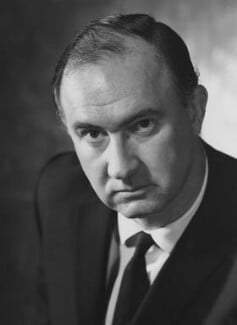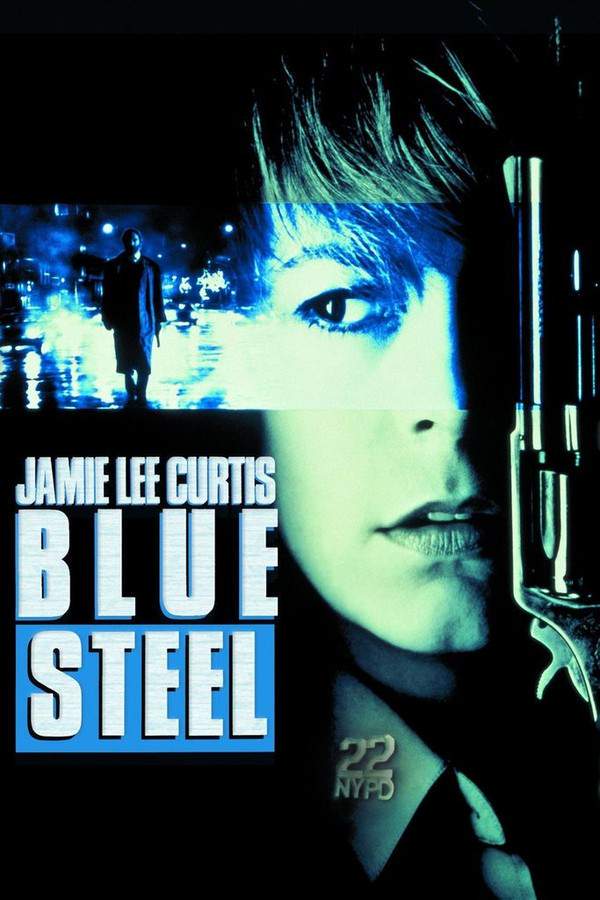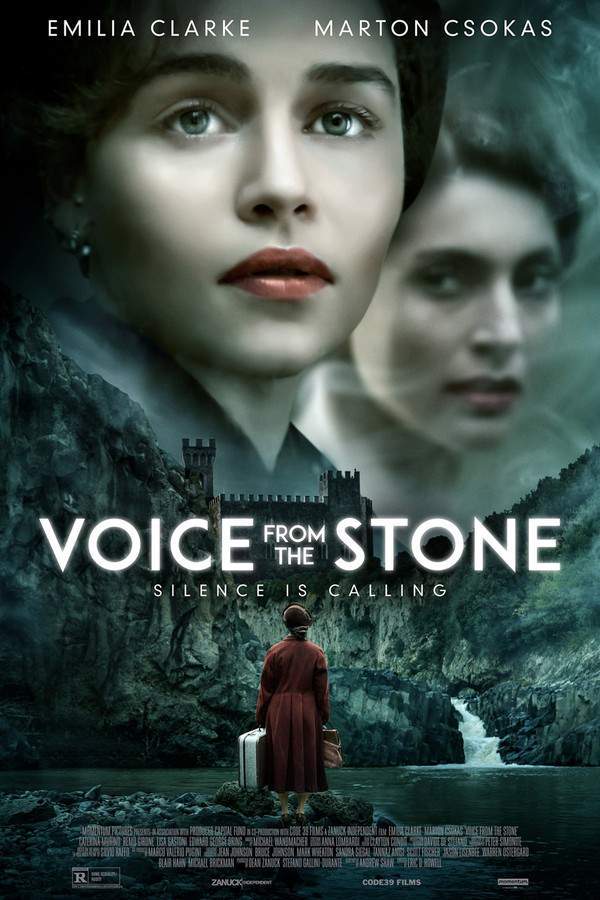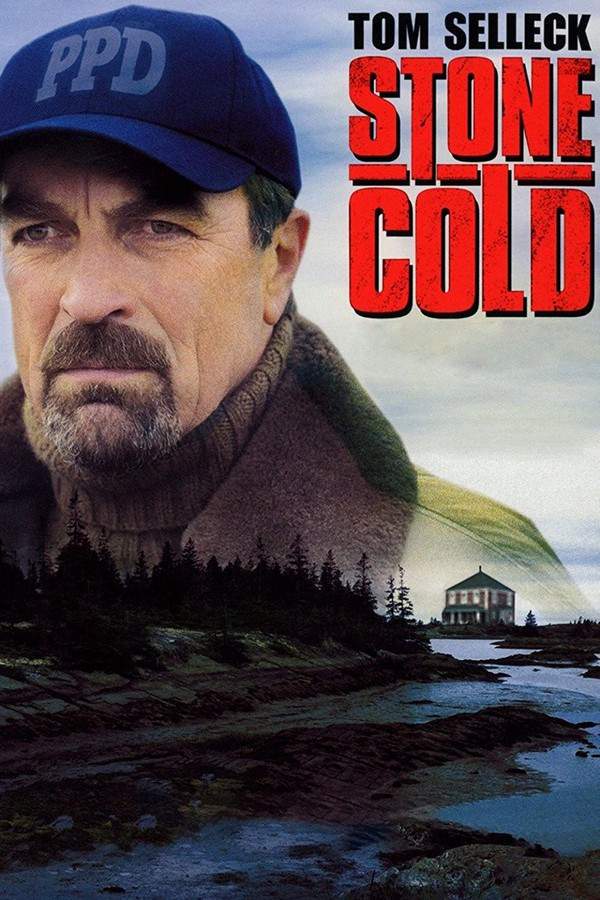
Stone 2010
Directed by

John Curran
Made by

Overture Films
Test your knowledge of Stone with our quiz!
Stone Plot Summary
Read the complete plot summary and ending explained for Stone (2010). From turning points to emotional moments, uncover what really happened and why it matters.
Young mother Madylyn Mabry puts her daughter to bed while her husband Jack watches a ball game on television. As a bee buzzes around the window, she stays with her girl. After the child is asleep, Madylyn goes downstairs and announces her intention to leave, stating, > “You keep my soul in a dungeon.” Jack briefly disconnects from the game, rushing upstairs to hold their daughter out the window, threatening to drop her if Madylyn leaves. He bellows, > “Do you think I won’t? Do you think I won’t?” Faced with this extreme act, Madylyn agrees to stay.
Years later, Jack Mabry (Robert De Niro) and Madylyn (Frances Conroy) return home from church for a quiet afternoon. Jack resumes his habitual routine—watching TV and drinking, mirroring his younger self, while Madylyn engages in solving a puzzle. Their peaceful evening is shattered late at night when a call awakens them. Jack answers, distressed, and asks, > “Betsy?” The next day, he finds himself at his brother Bobby’s funeral, grappling with his emotions.
As a parole officer at a prison, Jack drives in while listening to Christian radio. During his interactions with different inmates, a persistent buzzing suggests the many pressures on his mind. In the warden’s office, Jack is asked to prepare his replacement, Janice, for his upcoming retirement. Jack, while sympathetic to the occasion, insists on keeping all of his current cases until he leaves. Among them is a new inmate named Gerald Creeson (Edward Norton), who prefers to be called Stone. As Jack examines his file, Stone straightforwardly requests help in securing an early release and displays frustration when Jack insists on discussing his crimes instead.
As tensions rise, Jack forcefully demands, > “sit the fuck down.” He attempts to establish a rapport, asserting that while they’re not friends, they should act as if they are to facilitate the conversation leading to mutual benefit. Stone describes his wife Lucetta (Milla Jovovich) in a way Jack finds offensive—referring to her as an “alien” and a “dime.” Stone graphically illustrates her wild sexuality and urges Jack to “watch out” because their conversation may spark unwanted thoughts. The clash of their worlds becomes apparent as each tries to pry into the other’s life.
That night, Jack shares drinks with Madylyn while listening to a Christian radio program about predestination. She tries to engage him in conversation, but he seems lost in his thoughts, unresponsive to her inquiries. Following another meeting with Stone, Jack learns more about him and the arson incident he was involved in—a crime that led to the deaths of his grandparents.
Meanwhile, Lucetta is shown working with preschoolers, emphasizing her brightness and warmth, a stark contrast to Stone’s troubling past. As Jack and Madylyn navigate their lives, Lucetta attempts to keep contact with Jack, eventually leading to lunch discussions filled with underlying tension; they slowly expose themselves to one another’s vulnerabilities and needs.
In a significant twist, it becomes clear that Jack’s life is spiraling out of control while trying to manage the dualities of love, betrayal, and moral dilemmas that arise from his interactions with Stone and Lucetta. Jack’s unease grows when he discovers his wife has been preoccupied by her own demons.
Jack’s penultimate conversation with Stone delves into spirituality and morality, revealing deeper philosophical discussions on misconceptions about guilt and redemption, moving the story into darker, unpredictable territories. The interactions between these characters crescendo into a drastic exit for Jack, who, engulfed in turmoil and betrayal, goes to confront Stone about ruining his life.
As the climax of the narrative approaches, it’s clear that Jack’s past decisions have potential repercussions, culminating in a haunting fire that symbolizes destruction, loss, and rebirth. Faced with a downward spiral, Jack undergoes a metamorphosis, evoking questions of faith, morality, and the essence of human relationships in the aftermath of unimaginable chaos.
The closing moments come with an echo of decisions that echo back on Jack and Madylyn. Their lives have become intertwined with Stone and Lucetta’s actions, urging Jack to confront the core of his existence as he unravels the complexities surrounding love, hate, life, and death, gradually leading him to a crossroads that must fundamentally change who he is.
Stone Timeline
Follow the complete movie timeline of Stone (2010) with every major event in chronological order. Great for understanding complex plots and story progression.
Madylyn Puts Her Daughter to Bed
Young mother Madylyn Mabry tenderly puts her daughter to sleep, ensuring her comfort and safety. Meanwhile, her husband Jack is absorbed in a ball game on television, indicating a disconnect in their relationship.
Jack’s Disturbing Threat
In a desperate attempt to halt Madylyn from leaving, Jack holds their daughter out the window and threatens to drop her. This shocking act forces Madylyn to reconsider her decision, showcasing the extreme dynamics of their tumultuous marriage.
Jack and Madylyn's Routine
Years pass, and Jack and Madylyn return home from church, settling into their habitual lifestyle. Jack resumes his routine of watching TV and drinking, while Madylyn engages in puzzles, reflecting their mundane, yet strained existence.
Bobby's Funeral
Late one night, Jack receives a distressing phone call that leads him to attend his brother Bobby's funeral the next day. The event marks a poignant moment as Jack grapples with grief and unprocessed emotions from his past.
Jack's Shift at the Prison
As a parole officer, Jack arrives at the prison while listening to Christian radio, providing insight into his internal struggles. He conducts meetings with inmates but is increasingly burdened by the pressures of his upcoming retirement.
Meeting Gerald Creeson
Jack meets a new inmate named Gerald Creeson, also known as Stone. Stone is straightforward in his desire for an early release, presenting Jack with a challenge that tests Jack’s professional boundaries and personal beliefs.
Jack Confronts Stone
Tensions escalate during their interaction when Jack angrily demands Stone to sit down. Their contrasting personalities clash, as Jack tries to establish rapport while dealing with Stone's brash demeanor and inappropriate comments about his wife.
Jack and Madylyn's Distanced Relationship
That night, Jack shares drinks with Madylyn as they listen to a program on predestination. Despite her attempts to connect, Jack remains detached, reflecting the growing rift between them.
Lucetta's Warm Nature
In a contrasting sequence, Lucetta is shown joyfully working with preschoolers, revealing her vibrant personality. This juxtaposition highlights the stark differences between her life and Stone's troubled past.
Lunch Discussions with Lucetta
Jack's interactions with Lucetta during lunch become laden with tension as they reveal their vulnerabilities. Their dialogues explore deeper emotional connections, blurring the lines between their respective lives.
Jack's Internal Struggles
As Jack continues to navigate his life, he spirals into a state of turmoil influenced by his interactions with Stone and Lucetta. The emotional strain reveals the complexities of love, betrayal, and moral dilemmas he faces.
Confrontation with Stone
Jack's ultimate meeting with Stone reveals philosophical discussions on guilt and redemption. Their dialogue pushes Jack to confront his beliefs and unveil the deeper consequences of their interactions.
The Haunting Fire
As the climax approaches, a haunting fire symbolizes destruction and rebirth. Jack faces a downward spiral, confronting a pivotal moment that forces him to reevaluate his past decisions and their impact on his life.
Jack's Metamorphosis
Through his journey, Jack undergoes a significant transformation as he grapples with his faith, morality, and human relationships. His encounter with the remnants of chaos leads him to a crossroads that will redefine his identity.
Confronting Existence
In the film's closing moments, Jack must confront the intertwining actions of himself with those of Stone and Lucetta. This confrontation forces Jack to face the complexities surrounding love, hate, life, and death.
Stone Characters
Explore all characters from Stone (2010). Get detailed profiles with their roles, arcs, and key relationships explained.
Jack Mabry (Robert De Niro)
Jack is a complex character torn between his duties as a parole officer and his personal moral dilemmas. His internal struggles manifest through his interactions with inmates like Stone and his wife Madylyn. As the narrative progresses, Jack undergoes significant turmoil, leading to a deep exploration of his identity and values.
Madylyn Mabry (Frances Conroy)
Madylyn is portrayed as a devoted mother grappling with her husband's emotional distance. Her character reveals the toll that Jack’s turmoil takes on their marriage. Madylyn's warmth contrasts sharply with the darker themes in the film, highlighting her struggle for connection amidst chaos.
Gerald 'Stone' Creeson (Edward Norton)
Stone represents the disruptive force in Jack’s life, embodying tension and moral ambiguity. His straightforward requests for help hide deeper, troubling desires that challenge Jack's ethical boundaries. Through their interactions, Stone becomes pivotal in Jack's journey towards self-discovery.
Lucetta (Milla Jovovich)
Lucetta is Stone's wife, characterized by her innocence and vibrant nature. She contrasts her husband’s dark past, offering glimpses of warmth and human connection. Her role is significant as she unwittingly pulls Jack further into the web of complexities surrounding Stone.
Stone Settings
Learn where and when Stone (2010) takes place. Explore the film’s settings, era, and how they shape the narrative.
Time period
The film appears to take place in contemporary times, as indicated by the modernized elements like Christian radio and the social dynamics explored within the characters. It portrays the struggles of the present day, focusing on human relationships amidst moral crises.
Location
Prison, Jack and Madylyn's Home
The movie takes place in a suburban home where Jack and Madylyn live, reflecting their mundane yet complex life. It also spans a prison environment, highlighting the stark differences between the lives of inmates and those outside. The contrasting settings symbolize the inner turmoil and tensions among the characters.
Stone Themes
Discover the main themes in Stone (2010). Analyze the deeper meanings, emotional layers, and social commentary behind the film.
🔥
Redemption
The theme of redemption plays a crucial role, as Jack grapples with his past decisions and their consequences. His interactions with Stone evoke questions of morality and the possibility of change. This theme drives the narrative, exploring how guilt and redemption shape an individual's identity.
💔
Betrayal
Betrayal threads through the personal relationships of the characters, particularly between Jack and Madylyn. Their marriage is strained under the weight of secrecy and emotional disconnect. The narrative delves into the implications of betrayal and its impact on personal redemption and relationships.
🌀
Chaos
Chaos reigns both externally, with the tumultuous events surrounding Jack's career, and internally, as he confronts his demons. The climax of the story highlights how chaos can lead to transformation, but also destruction. The film ultimately asks whether one can emerge from chaos unscathed.

Coming soon on iOS and Android
The Plot Explained Mobile App
From blockbusters to hidden gems — dive into movie stories anytime, anywhere. Save your favorites, discover plots faster, and never miss a twist again.
Sign up to be the first to know when we launch. Your email stays private — always.
Stone Spoiler-Free Summary
Discover the spoiler-free summary of Stone (2010). Get a concise overview without any spoilers.
In a rain‑slick city where the neon glow never quite reaches the shadows, Jack carries the weight of a long career in law enforcement. A veteran detective whose instincts are as sharp as his cynicism, he is haunted by personal ghosts that linger long after the case files are closed. His days are a routine of gritty investigations and quiet moments of introspection, each one a reminder that the line between justice and obsession has grown thin.
When a mysterious young woman walks into his life, the balance he has tried to maintain is abruptly disturbed. Madylyn exudes an enigmatic confidence that both intrigues and unnerves him, hinting at motives that are as layered as the city’s underbelly. Their unlikely partnership forces Jack to confront the parts of himself he has long tried to ignore, while the woman’s own secrets suggest a deeper connection to forces operating far beyond the precinct’s reach.
Together they discover that the city’s problems run deeper than street‑level crime; a powerful, secretive government agency moves pieces on a hidden chessboard, pulling strings that affect everything from police reports to personal loyalties. The tone remains tense and atmospheric, blending classic noir mood with a modern sense of paranoia, as the pair navigate corridors of power where truth is a commodity and trust is a dangerous gamble.
The film’s style is unapologetically moody, using dim lighting, lingering close‑ups, and a soundtrack that pulses with subdued dread. As Jack and Madylyn delve further into the murky conspiracy, the audience is kept on edge, wondering whether the greatest threat comes from the shadows outside or the demons that whisper within.
Can’t find your movie? Request a summary here.
Movies with Similar Twists and Themes
Uncover films that echo the narrative beats, emotional arcs, or dramatic twists of the one you're exploring. These recommendations are handpicked based on story depth, thematic resonance, and spoiler-worthy moments — perfect for fans who crave more of the same intrigue.
Featured on this page

What's After the Movie?
Not sure whether to stay after the credits? Find out!
Explore Our Movie Platform
New Movie Releases (2026)
Famous Movie Actors
Top Film Production Studios
Movie Plot Summaries & Endings
Major Movie Awards & Winners
Best Concert Films & Music Documentaries
Movie Collections and Curated Lists
© 2026 What's After the Movie. All rights reserved.









